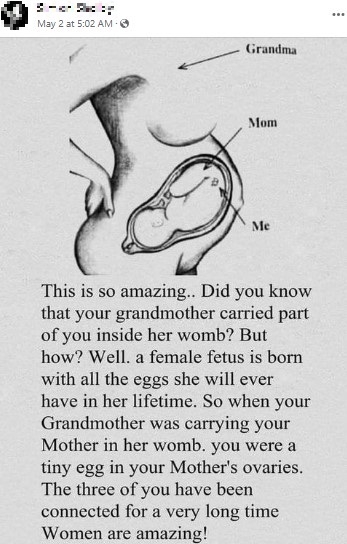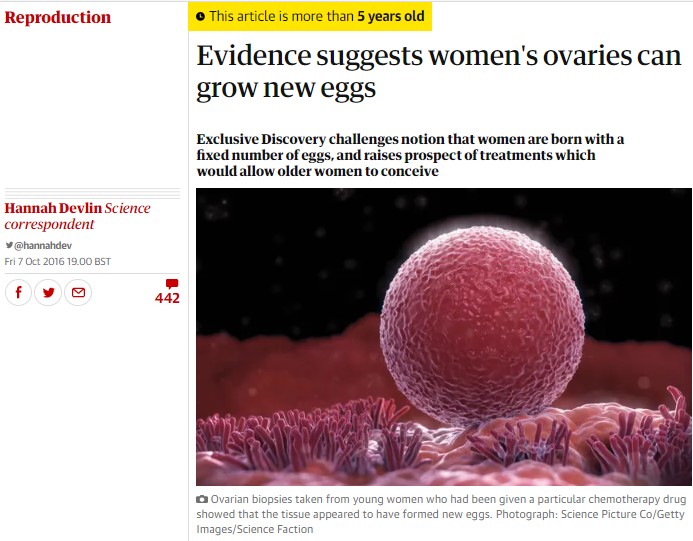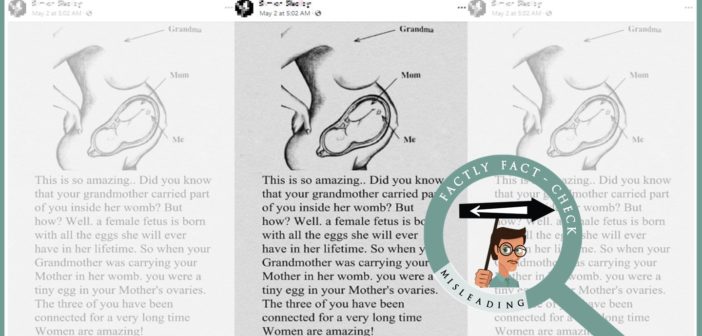A post is being widely shared on social media claiming that a female foetus is born with all the eggs she will ever have in her lifetime. The post further claims that, hence, one’s grandmother carried part of them inside their womb. Let us fact-check the claim made in the post.

Claim: A female foetus is born with all the eggs she will ever have in her lifetime.
Fact: This statement, “a female foetus is born with all the eggs she will ever have in her lifetime”, is not unanimously accepted in the scientific community. Though it is widely believed to be true, some recent research gives a possibility of ovaries growing new eggs , however, the research is not yet 100% definitive about the statement.
According to Cleveland Clinic, “During foetal life, there are about 6 million to 7 million eggs. From this time, no new eggs are produced. At birth, there are approximately 1 million eggs; and by the time of puberty, only about 300,000 remain. Of these, only 300 to 400 will be ovulated during a woman’s reproductive lifetime. Fertility can drop as a woman ages due to decreasing number and quality of the remaining eggs.” (At an early stage, to be precise, it’s called the ova or oocytes (egg cells)).
There is a possibility of the formation of new eggs during adult life, according to some research. One small study involving cancer patients showed such signs. The group which did the study identified what appeared to be stem cell populations in the ovaries. The existence of an ovarian stem cell reserve is disputed among scientists.
‘Although the research is promising, Telfer warned against the apparent eagerness of some fertility clinics to offer novel treatments before the basic science is well understood. “There’s so much we don’t know about the ovary. We have to be very cautious about jumping to clinical application.”’

According to this 2004 study published in nature, Ovaries may lay new eggs. “US researchers have unearthed evidence in a mouse’s ovary of stem cells that churn out fresh eggs during its reproductive years. This suggests ovaries have more in common with the male’s testicular sperm factory than had been thought.”
One such research in 2012 “has demonstrated that adult mouse and human ovaries contain a rare population of progenitor germ cells called oogonial stem cells capable of dividing and generating new oocytes.”
However, the research is not yet 100% definitive. There is no conclusive evidence that new eggs are produced, yet from this research. This is ongoing area of study.
Technically, a maternal grandmother carrying a part of them inside her womb can be true as there are many eggs during foetal life. All humans start as a single fertilised cell containing 1/2 of the mother’s DNA and the father’s DNA.
To sum it up, there has been research about human ovary growing new eggs in adulthood, which is disputed among scientists.



